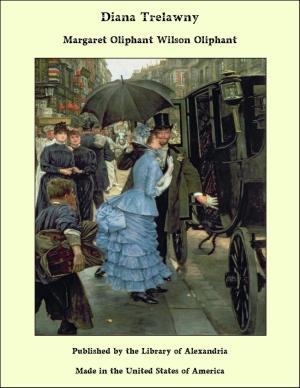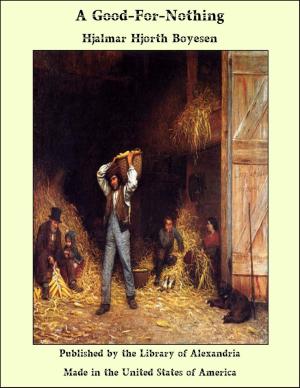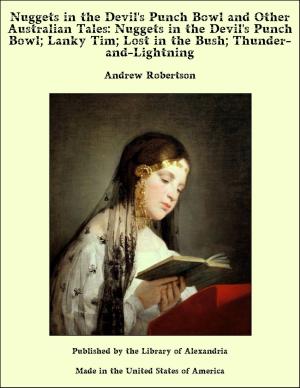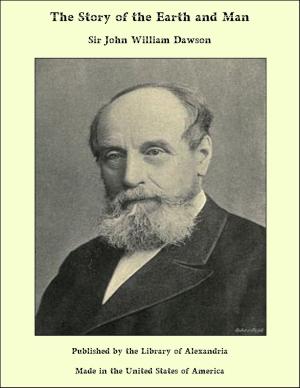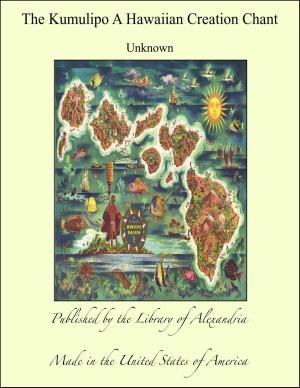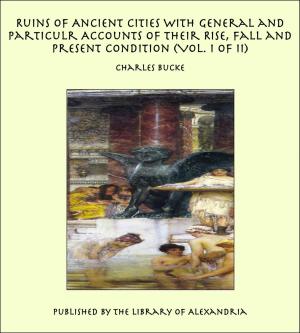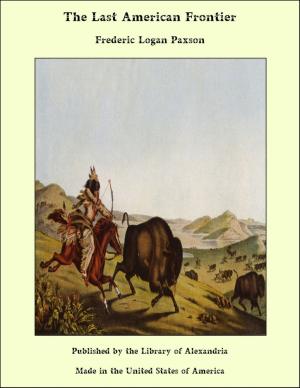| Author: | Madame Sarah Grand | ISBN: | 9781465624710 |
| Publisher: | Library of Alexandria | Publication: | March 8, 2015 |
| Imprint: | Language: | English |
| Author: | Madame Sarah Grand |
| ISBN: | 9781465624710 |
| Publisher: | Library of Alexandria |
| Publication: | March 8, 2015 |
| Imprint: | |
| Language: | English |
At nineteen Evadne looked out of narrow eyes at an untried world inquiringly. She wanted to know. She found herself forced to put prejudice aside in order to see beneath it, deep down into the sacred heart of things, where the truth is, and the bewildering clash of human precept with human practice ceases to vex. And this not of design, but of necessity. It was a need of her nature to know. When she came across something she did not understand, a word, a phrase, or an allusion to a phase of life, the thing became a haunting demon only to be exorcised by positive knowledge on the subject. Ages of education, ages of hereditary preparation had probably gone to the making of such a mind, and rendered its action inevitable. For generations knowledge is acquired, or, rather, instilled by force in families, but, once in a way, there comes a child who demands instruction as a right; and in her own family Evadne appears to have been that child. Not that she often asked for information. Her faculty was sufficient to enable her to acquire it without troubling herself or anybody else, a word being enough on some subjects to make whole regions of thought intelligible to her. It was as if she only required to be reminded of things she had learnt before. Her mother said she was her most satisfactory child. She had been easy of education in the schoolroom. She had listened to instruction with interest and intelligence, and had apparently accepted every article of faith in God and man which had been offered for her guidance through life with unquestioning confidence; at least she had never been heard to object to any time-honoured axiom. And she did, in fact, accept them all, but only provisionally. She wanted to know. Silent, sociable, sober, and sincere, she had walked over the course of her early education and gone on far beyond it with such ease that those in authority over her never suspected the extent to which she had outstripped them. It was her father who struck the keynote to which the tune of her early intellectual life was set. She was about twelve years old at the time, and they were sitting out on the lawn at Fraylingay one day after dinner, as was their wont in the summer—he, on this occasion, under the influence of a good cigar, mellow in mind and moral in sentiment, but inclining to be didactic for the moment because the coffee was late; she in a receptive mood, ready to gather silently, and store with care, in her capacious memory any precept that might fall from his lips, to be taken out and tried as opportunity offered.
At nineteen Evadne looked out of narrow eyes at an untried world inquiringly. She wanted to know. She found herself forced to put prejudice aside in order to see beneath it, deep down into the sacred heart of things, where the truth is, and the bewildering clash of human precept with human practice ceases to vex. And this not of design, but of necessity. It was a need of her nature to know. When she came across something she did not understand, a word, a phrase, or an allusion to a phase of life, the thing became a haunting demon only to be exorcised by positive knowledge on the subject. Ages of education, ages of hereditary preparation had probably gone to the making of such a mind, and rendered its action inevitable. For generations knowledge is acquired, or, rather, instilled by force in families, but, once in a way, there comes a child who demands instruction as a right; and in her own family Evadne appears to have been that child. Not that she often asked for information. Her faculty was sufficient to enable her to acquire it without troubling herself or anybody else, a word being enough on some subjects to make whole regions of thought intelligible to her. It was as if she only required to be reminded of things she had learnt before. Her mother said she was her most satisfactory child. She had been easy of education in the schoolroom. She had listened to instruction with interest and intelligence, and had apparently accepted every article of faith in God and man which had been offered for her guidance through life with unquestioning confidence; at least she had never been heard to object to any time-honoured axiom. And she did, in fact, accept them all, but only provisionally. She wanted to know. Silent, sociable, sober, and sincere, she had walked over the course of her early education and gone on far beyond it with such ease that those in authority over her never suspected the extent to which she had outstripped them. It was her father who struck the keynote to which the tune of her early intellectual life was set. She was about twelve years old at the time, and they were sitting out on the lawn at Fraylingay one day after dinner, as was their wont in the summer—he, on this occasion, under the influence of a good cigar, mellow in mind and moral in sentiment, but inclining to be didactic for the moment because the coffee was late; she in a receptive mood, ready to gather silently, and store with care, in her capacious memory any precept that might fall from his lips, to be taken out and tried as opportunity offered.




